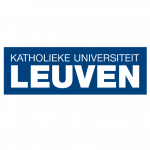April 24, 2021

Université de Lille and KU Leuven, Belgium
The research group itec at KU Leuven, campus Kulak in Kortrijk, and imec, is looking for a PhD Fellowship in Supporting teaching and learning in Technology-Enhanced Learning Spaces for a joint PHD with ULille.
Context
Since November 2020 Dr. Annelies Raes is Chair Holder on Technology-Enhanced Learning Spaces. This Chair is funded by I-SITE ULNE (made possible by the French government through the Programme Investissement d’Avenir I-SITE ULNE / ANR-16-IDEX-0004 ULNE managed by the Agence Nationale de la Recherche).
The chair is a partnership between Université de Lille and KU Leuven, Belgium and more particularly between the research groups CIREL and Itec, imec research group at KU Leuven. Founded in 2008, CIREL is currently one of the most important educational research units in France and in the Euroregion. It has progressively become a reference in the field of education and training sciences in its own fields of specialisation, in particular regarding work related to research in computer environments for human learning. Itec is a research group of KU Leuven and imec, Flanders’ high-tech research and innovation hub for nanoelectronics and digital technologies. The research group conducts interdisciplinary research on the design, development, and evaluation of personalized and adaptive digital solutions, with applications mostly in the domain of technology-enhanced education and training, but also in media and in health.
The Joint PhD will be situated within the context of the Chair Technology-Enhanced Learning Spaces and the candidate will also be involved in the current research project funded by imec on Supporting Teamwork in Ambient Learning Spaces. As Associate Research Directors of the Chair on Technology-Enhanced Learning Spaces (TELS) Prof. dr. Jean Heutte from CIREL, ULille and Prof. dr. Fien Depaepe from itec, KU Leuven and will be, together with Dr. Annelies Raes, part of the supervising team of the PhD project.
Project
The main objective of joint PhD project is to conduct innovative research on the use of multimodal teaching and learning analytics, also called “classroom analytics” to contribute to the development of optimal learning environments. Informed by theoretical frameworks (e.g. autothetic experience (Csikszentmihalyi), Social Facilitation Theory (Triplett) and Social-Cognitive Theory (Bandura)), and instructional design principles (e.g. Productive Failure (Kapur), and the activity-centred analysis and design (ACAD) framework (Goodyear, Carvalho & Yeoman), the joint PhD aims to get insight into effective teaching and learning. Data collection will be conducted in highly ecologically valid contexts (i.e. the new learning spaces within Lille Learning Lab and within Leuven Learning Lab) and will include both quantitative and qualitative measures. We aim to go beyond current work by defining and assessing quality of teaching and learning in terms of measurable multimodal indicators based on behavior, log data, eye tracking data, audiovisual data and sensor data from activities within the learning spaces.
This means that we will not only focus on leaning analytics, aimed to model the skills developed by the learners using educational software. It has been stressed in the current educational literature (e.g. Martinez-Maldonado et al., 2021; Prieto et al., 2016) that we should broaden the scope of analytics, modelling not only the learners interactions with the digital tool, but anything that may happen in this specific ecosystem called a classroom or learning space. The joint PhD will meet the current gap in literature and expand towards teaching analytics or classroom analytics including eye-tracking, EEG, accelerometer, audio and video.
References :
Heutte, J. (2017). Motivations, volition et expérience du flow : quelques références théoriques pour l’étude des communautés d’apprenance. Dans O. Las Vergnas (dir.), Le e-learning informel ? Des apprentissages diffus, noyés dans la participation en ligne (p. 199-214). Paris, France : Archives contemporaines.
Heutte J. (2021). L’expérience autotélique dans les EIAH : genèse socio-historique, épistémologique et critique de l’émergence des technologies positives pour l’apprentissage. STICEF (Sciences et Technologies de l’Information et de la Communication pour l’Éducation et la Formation), 27, 14-82.
Martinez-Maldonado, R., Yan, L., Deppeler, J., Phillips, M., and Gašević, D. (2021). Classroom Analytics: Telling Stories about Learning Spaces using Sensor Data. In E. Gil, Y. Mor, Y. Dimitriadis & C. Köppe (Eds.), Hybrid Learning Spaces. Cham, Switzerland: Springer (to appear).
Prieto, L. P., Sharma, K., Dillenbourg, P. & Jesús, M. (2016). Teaching analytics: towards automatic extraction of orchestration graphs using wearable sensors. In Proceedings of the Sixth International Conference on Learning Analytics & Knowledge (LAK ’16). Association for Computing Machinery, New York, NY, USA, 148–157. https://doi.org/10.1145/2883851.2883927
Raes, A., & Depaepe, F. (2020). A longitudinal study to understand students’ acceptance of technological reform. When experiences exceed expectations. Education and Information Technologies, 25 (1), 533-552. doi: 10.1007/s10639-019-09975-3 Open Access
Raes, A., Vanneste P., Pieters, M., Windey, I., Van Den Noortgate, W. & Depaepe, F. (2020). Learning and instruction in the hybrid virtual classroom: An investigation of students’ engagement and the effect of quizzes. Computers & Education. https://doi.org/10.1016/j.compedu.2019.103682
Tan, S., Wiebrands, M., O’Halloran, K, & Wignell, P. (2020). Analysing student engagement with 360-degree videos through multimodal data analytics and user annotations. Technology Pedagogy and Education. https://doi.org/10.1080/1475939X.2020.1835708
To apply for this job please visit itec.kuleuven-kulak.be.
